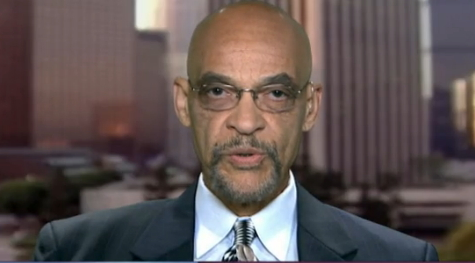Earl Ofari Hutchinson
Two things happened recently within days of each other that again tossed the hideous glare back on the cheapness of Black lives. The first was the study by the Proceedings of the National Academy of Sciences that found that young Back males are still at mortal risk of being gunned down by police. It was as if the mass protests over the slaying of Michael Brown, Tamir Rice, Philando Castile, Ezell Ford, and Eric Garner, never happened. Or that Black Lives Matter never existed. The peril to young Black males of death from police bullets has gone unabated.
The other thing that cast the ugly glare on the issue was the trial of a grocery clerk in Memphis. He was tried and convicted of slaying Dorian Harris, an alleged teen shoplifter. The killing was horrific enough. But what was even more eye catching was that Harris need not have died even after he was shot. He received no medical attention for two days and he bled to death. His body was found much later. Harris prostrate body with treatable gunshot wounds was simply no big deal to the shooter or for that matter seemingly anyone else connected with the store.
There’s more. The study by the prestigious academy garnered almost no media attention. The trial and conviction of the Memphis grocery clerk came more than a year after the Harris killing. There was little public attention paid to this case either.
There are two reasons for this. One is that painful as it is to say it. The police slaying off young Blacks has become something a of a new norm. It happens so often as the Academy study painfully notes, that it no longer evokes any sustained outcries. The killings have almost had a numbing effect on many Blacks, much of the media, and the public. There seems to be no end to them and there’s frustration that nothing can be done about them. In the rare cases cops are tried for the slaying of an unarmed Black they are routinely acquitted. It almost seems like a pointless exercise, or worse a charade. This further deepens cynicism and deadens hope that justice will ever be served when Blacks are slain with only the flimsiest justification.
The Memphis clerk was not a cop. He was arrested and convicted. But even here there was a special leniency since jurors rejected the prosecution contention that the murder was premediated. This would have drawn a much stiffer sentence.
The legal and social footprint on these slayings has by now been well established. It goes like this. An acquittal or hand slap sentence of the shooter. Then there’s the inevitable character assassination of the victim. Police officials hold press conferences, leak documents, and orchestrate a well-oiled press campaign to depict the victims as having a criminal record, a deadbeat dad, and any other kind of deviant behavior they can smear the victim with. The brutal inference is that he is a bad guy who got what he deserved. Harris was pictured as a thief who stole of all thing a two dollar can of beer.
They get away with this by anchoring it on the ancient, shop worn, but serviceable litany of stereotypes and negative typecasting of young black males. It’s the shortest of short steps to think that if these men can be depicted as a caricature of the terrifying image that much of the public still harbors about young, and so young, Black males, then that image seems real, even more terrifying, and the consequences are just as deadly.
There have been countless studies, surveys, and just plain candid admissions from many that they still cringe with terror in the presence of Black males. In fact, many of the old stereotypes about poverty and crime and Blacks remain just as frozen in time. Much of the public still perceives those most likely to commit crimes as poor, jobless and Black. Race and poverty and crime are firmly etched together in the public mind. Once the stereotype is planted, it’s virtually impossible to root out.
In 2003 and 2008, Penn State University researchers found that many whites are likely to associate pictures of blacks with violent crime. This was no surprise given the relentless media depictions of young blacks as dysfunctional, dope-peddling, gang bangers and drive-by shooters. The Penn State study found that even when blacks didn’t commit a specific crime; whites still misidentified the perpetrator as an African American. Immediately after the election of former President Obama in 2008, the researchers still found public attitudes on crime and race unchanged. Many whites still overwhelmingly fingered Blacks as the most likely to commit crimes, even when they didn’t commit them.
The “normalizing” of this violence against Blacks means a slaying is one day in and one day out in the news. Then It’s back to business as usual. That was the case with the Academy study and the Harris killing. The short-lived black lives matter movement did little to make black lives matter. And worse the indifference to it.
Earl Ofari Hutchinson is an author and political analyst. He is the author of Why Black Lives Do Matter (Middle Passage Press). He is a weekly co-host of the Al Sharpton Show on Radio One. He is the host of the weekly Hutchinson Report on KPFK 90.7 FM Los Angeles and the Pacifica Network.

